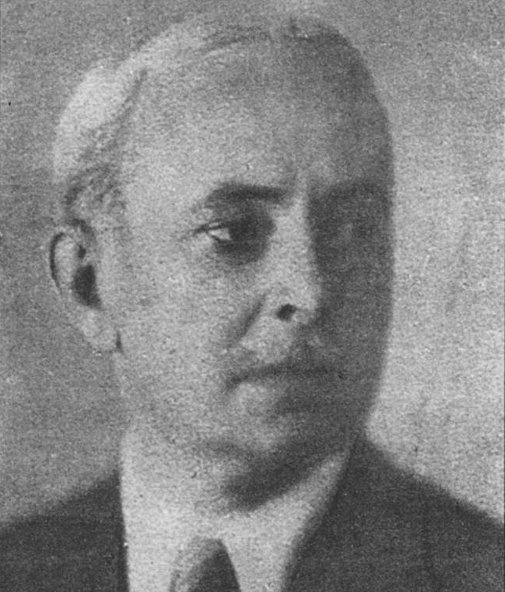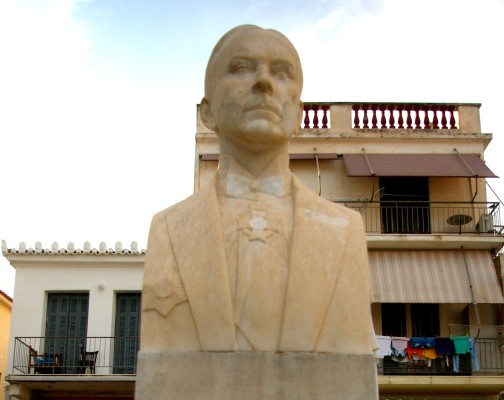
Alexandros Koryzis is no more than a footnote in modern Greek history, but on Poros he is remembered as the prime minister who killed himself rather than surrender the country to Nazi Germany.
His tenure was short—less than three months—but is typical of the political tensions and intrigue at the time. Locals also see great symbolism in the date of his death: April 18, 1941, which, coincidentally was Good Friday that year.
Born 1885 on Poros, Koryzis came from a background of privilege. Both his grandfather and his father were politicians; his father was elected to Parliament three times and served as Poros mayor from 1895 to 1899. But his childhood was also marred by his mother’s death when he was just seven years old.
Koryzis studied law and in 1903, at the age of eighteen, went to work for the National Bank of Greece, of which he became deputy governor in 1928. A year later, in 1929, he founded the Agricultural Bank of Greece and served as its first president. When General Ioannis Metaxas seized power in 1936, he appointed Koryzis to the Ministry of Social Welfare.
Metaxas’s unexpected death on January 29,1941, caused his dictatorship’s collapse, just three months since his October 28 rejection of Mussolini’s surrender ultimatum put Greece at war with Italy. With no obvious successor, King George moved to fill the void by appointing Koryzis premier yet keeping a tight reign on power, as Britain desired. As war raged on the Albanian front and the Germans poised to attack Greece, the technocrat Koryzis was overwhelmed. On April 6, he rejected a German demand to expel all British forces from Greece, effectively triggering the German invasion. In less than ten days, Nazi forces were occupying most of the country.
On April 18, 1941, with German troops advancing, the British met with the king and the Greek cabinet at the Tatoi summer palace. The British insisted that the Greeks set up a defensive line at Thermopylae—a plan opposed by the head of the Greek forces, Marshal Alexander Papagos. Later that day, Koryzis was summoned to a meeting at the Grande Bretagne Hotel after which he had a private meeting with the king. Nothing is known about the exchange between king and prime minister, although Koryzis was described as despondent afterwards. A few hours later he was found dead in his home, having shot himself through the heart.
Historians have speculated about what may have led Koryzis to suicide, alluding to the existence of dramatic cables from the front with references to surrender and treason. The official account in the History of the Army General Command says Koryzis had left the meeting shaken when the king has said he would consider the premier’s proposal for government to be assumed by the military. Although it’s certain that king and prime clashed behind closed doors that night, the source of their disagreement remains unclear. Some scholars say Koryzis was unable to persuade the generals to follow the British line; others take the conspiratorial view that Koryzis’s death was not suicide but an assassination by British agents as a lesson to anyone who might considering stepping out of line. To date, the mystery surrounding the circumstances of Koryzis’s suicide remains.
Diane Shugart







